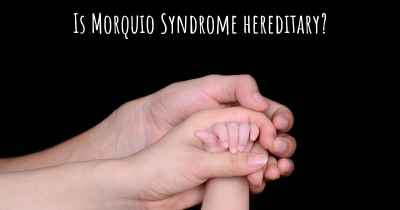How do I know if I have Morquio Syndrome?
What signs or symptoms may make you suspect you may have Morquio Syndrome. People who have experience in Morquio Syndrome offer advice of what things may make you suspicious and which doctor you should go to to receive treatment

How do I know if I have Morquio Syndrome?
Morquio Syndrome, also known as Mucopolysaccharidosis Type IV (MPS IV), is a rare genetic disorder that affects the body's ability to break down certain complex sugars called glycosaminoglycans (GAGs). This condition is inherited in an autosomal recessive manner, meaning that both parents must carry the gene mutation for a child to be affected.
Symptoms: Morquio Syndrome can present with a wide range of symptoms, which can vary in severity from person to person. Some common signs and symptoms include:
- Short stature: Individuals with Morquio Syndrome often have short stature compared to their peers.
- Skeletal abnormalities: This condition can cause various skeletal abnormalities, such as abnormal curvature of the spine (scoliosis), flattened vertebrae, and abnormal development of the bones in the hips, knees, and chest.
- Joint problems: Joint stiffness and pain are common in Morquio Syndrome. This can lead to limited mobility and difficulty with activities of daily living.
- Enlarged organs: Some individuals with Morquio Syndrome may have enlarged liver and spleen.
- Dental issues: Dental abnormalities, including overcrowded teeth, misalignment, and frequent cavities, are often observed in individuals with this condition.
- Respiratory problems: Morquio Syndrome can affect the structure of the chest, leading to respiratory difficulties and an increased risk of respiratory infections.
- Heart problems: In some cases, individuals with Morquio Syndrome may have heart valve abnormalities or other heart-related issues.
Diagnosis: If you suspect you or a loved one may have Morquio Syndrome, it is important to consult with a healthcare professional. Diagnosis typically involves a combination of clinical evaluation, medical history review, and specialized tests. These may include:
- Physical examination: A doctor will assess the presence of characteristic physical features and evaluate skeletal abnormalities.
- Enzyme activity test: A blood or urine test can measure the activity of specific enzymes involved in breaking down GAGs. Reduced enzyme activity can indicate Morquio Syndrome.
- Genetic testing: DNA analysis can identify specific gene mutations associated with Morquio Syndrome. This test can confirm the diagnosis and determine carrier status.
- Imaging studies: X-rays, CT scans, or MRI scans may be performed to assess skeletal abnormalities and organ involvement.
Treatment and Management: While there is currently no cure for Morquio Syndrome, various treatment options are available to manage symptoms and improve quality of life. These may include:
- Enzyme replacement therapy (ERT): Regular infusions of synthetic enzymes can help replace the deficient enzymes in the body, potentially slowing down disease progression.
- Orthopedic interventions: Surgical procedures may be necessary to address skeletal abnormalities, improve joint function, and alleviate pain.
- Physical and occupational therapy: These therapies can help maintain mobility, improve muscle strength, and enhance daily functioning.
- Respiratory support: Some individuals may require respiratory interventions, such as breathing exercises, airway clearance techniques, or the use of assistive devices.
- Dental care: Regular dental check-ups and preventive measures are essential to manage dental issues associated with Morquio Syndrome.
It is important to remember that only a qualified healthcare professional can provide an accurate diagnosis of Morquio Syndrome. If you suspect you or someone you know may have this condition, seek medical advice promptly. Early diagnosis and appropriate management can significantly improve outcomes and quality of life for individuals with Morquio Syndrome.








